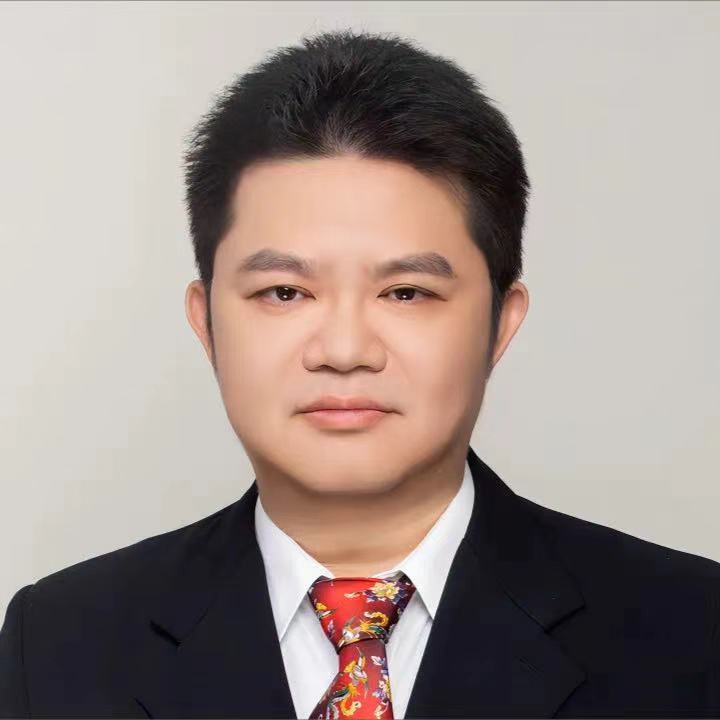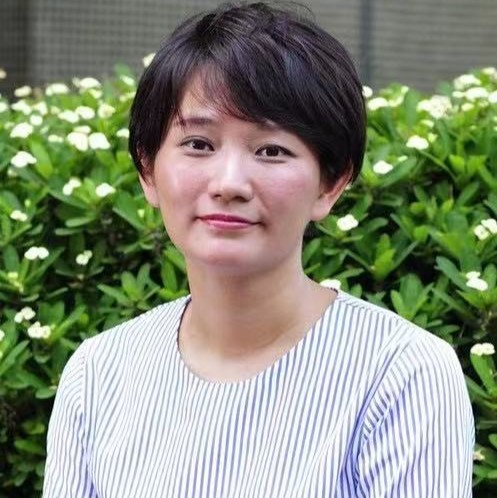and Practices,Intelligent Learning Environments
Introduction
This track focuses on the theoretical, model-based, strategic, and practical aspects of artificial intelligence (AI) in education, as well as the design, technology, and evaluation of intelligent learning environments. It also explores various scenarios for the application of AI in education. The goal of this sub-conference is to better understand the various facets of the integration of AI and education, promoting the design and development of learning systems supported by AI. The development of AI in education applications and practices, along with the creation of intelligent learning environments, results from the convergence of multiple disciplines, including learning technology, educational research and practice, cognitive and learning sciences, computer science, psychology, linguistics, and other related fields. The challenges faced by AI in education stem from its interdisciplinary nature, often requiring collaboration among experts from various domains to provide innovative, interdisciplinary solutions to enhance teaching and learning. This track aims to gather renowned experts and scholars globally in this field, using this open platform as a foundation to collectively explore new theoretical and practical insights, further advancing the development of this field.
Paper Submission Topics (including but not limited to the following)
1.Theories, models, and strategies of AI in Education (AIED)
2.Teaching practices in AI Education
3.Applications of generative AI models, large language models, and multimodal models in education
4.Construction and application of large-scale educational models
5.Construction, application, and evaluation of intelligent teaching systems
6.Ethical, moral, and regulatory considerations in AI in Education (AIED)
7.Educational applications of deep neural network technologies
8.Applications of knowledge graphs in education
9.Emerging AI models such as contrastive learning, meta-learning, and few-shot learning in education
10.Research on AI and adaptive learning
11.Learning analytics research based on big data
12.Learning research using context-aware sensing technologies
13.Adaptive diagnostics for personalized learning characteristics of students
14.Intelligent decision-making in educational management
15.Educational robots and intelligent learning companions
16.AI-based automatic problem-solving and tutoring systems
Paper Submission
Full manuscripts shall be submitted to the conference for review. Abstract submissions will NOT be accepted. This conference uses double-blind review,
which means that both the reviewer and author identities are concealed from the reviewers, and vice versa, throughout the review process. Please kindly
note that when authors submit papers for review, the authors’ information has to be blinded in the title, the contents, and the reference part. After
the paper is being accepted, the author information will be displayed in the final version of the submitted paper.
1.Authors should only prepare submissions in Chinese (Long paper: 8 pages; Short paper: 4 pages; Poster: 2 pages). Submissions written in Chinese
should include the title, abstract and keywords written in both Chinese and English.
2.Authors should make submissions by uploading papers onto the Submission System of the conference
https://easychair.org/conferences/?conf=gccce2025
3.Authors should submit papers with PDF format. Please make use of the paper template for preparing submissions.
4. Please pay attention to all English papers, regardless of topic, please submit to English Paper Track。
5. At least one author is required to register and present for publication once a paper is accepted.
C6 Program Committee
Executive Chair

LIU Xiangyong
Jiangnan University (Mainland China)
Co-Chairs

Hu Xiangen
The Hong Kong Polytechnic University(Hong Kong)

WU Longkai
Central China Normal University(Mainland China)

CHIN Kai Yi
Soochow University(Taiwan)
Program Committee Members
BIAN Yang, The Beijing Institute of Education
CHEN Gao-Wei, The University of HongKong
CHEN Jia, Central China Normal University
CHEN Xiao-Lang, Southwest University
DING Guo-Zhu, Guangzhou University
CAO Xiao-Ming, Shenzhen University
HSIEH Min-Chai, Tainan University of Technology
HUANG Shi-Hua, Guangdong Polytechnic Normal University
HUANG Yun-Long, Jiangxi University of Science and Technology
Wen-Chuan Wu, National Ilan University
Li Yan, Harbin Normal University
Zhang Yan, Xinjiang Normal University
Qian Songling, Jilin Normal University
Bi Jinggang, Jilin Normal University
Wang Meng, Jiangnan University
Wang Yonggu, Zhejiang University of Technology
Xu Jihong, Inner Mongolia Normal University
Jing Yongjun, Shenyang Normal University
Chen Zhihong, Taiwan Taichung University of Education
Zhu Zhiming, Taiwan Yilan University
Tu Yunfang, Soochow University
Hong Zhenwei, Feng Chia University
Yang Kaixiang, Taiwan University of Taipei
BIAN Yang, The Beijing Institute of Education
CHEN Gao-Wei, The University of Hong Kong
CHEN Jia, Central China Normal University
CHEN Xiao-Lang, Southwest University
DING Guo-Zhu, Guangzhou University
CAO Xiao-Ming, Shenzhen University
HSIEH Min-Chai, Tainan University of Technology
HUANG Shi-Hua, Guangdong Polytechnic Normal University
HUANG Yun-Long, Jiangxi University of Science and Technology
Wen-Chuan Wu, National Ilan University
Li Yan, Harbin Normal University
Zhang Yan, Xinjiang Normal University
Qian Songling, Jilin Normal University
Bi Jinggang, Jilin Normal University
Wang Meng, Jiangnan University
Wang Yonggu, Zhejiang University of Technology
Xu Jihong, Inner Mongolia Normal University
Jing Yongjun, Shenyang Normal University
Chen Chih-Hung, Taiwan Taichung University of Education
Chu Chih-Ming, Taiwan Yilan University
Tu Yunfang, Soochow University
Hong Zeng-Wei, Feng Chia University
Yang Kai-Hsiang, Taiwan University of Taipei
LEE Lap-Kei, Hong Kong Metropolitan University
LIU Xuan, The Open University of Sichuan
LIU Zhi, Central China Normal University
MOU Zhi-Jia, Jiangnan University
NONG Li-Qiao, Guangxi Polytechnic of Construction
OU-YANG Yin, University of Tainan
QUAN Guo-Long, Jiangnan University
SUN Yi, Kobe Institute of Computing
TIAN Hao, Nanjing University of Information Science & Technology
Hota Chia-Sheng Lin, Ming Chuan University
Jiang Qiang, Northeast Normal University
Yang Ning, Fujian Normal University
Bao Zhengwei, Fujian Normal University
Qian Yizhou, Jiangnan University
Wang Wei, Northeast Normal University
Yang Yin, The Education University of Hong Kong
Li Wenjuan, The Education University of Hong Kong
Liu Ming-Chi, Feng Chia University
Chang Ching-Yi, Taipei Medical University
Wang Chun-Chieh, Taiwan Pingtung University
Li Hongwei, Soochow University
Lai Chiu-Lin, Taiwan University of Taipei
Hsia Lu-Ho, Taiwan Chingyi University of Technology
Su Wei-Tsung, Soochow University
WANG Huai-Bo, Beijing Normal University
WANG Yun-Wu, Jiangsu Normal University
WANG Zhi-Feng, Central China Normal University
WU Lan, Nanjing University of Information Science & Technology
WU Ting-Ting, Taiwan Yunlin University of Science and Technology
WU Peng-Fei, Shijiazhuang Tiedao University
XU Zhen-Guo, Qufu Normal University
ZHAN Ze-Hui, South China Normal University
HWANG Gwo-Haur, Taiwan Yunlin University
Wang Yue, The Education University of Hong Kong
Xie Yishan, The Education University of Hong Kong
Wang Juan, The Education University of Hong Kong
Liu Jingxi, The Education University of Hong Kong
Zheng Zhiyi, The Education University of Hong Kong
Tian Peiyao, The University of Hong Kong
Yeung Chung Yiu, Richard, The Education University of Hong Kong
Li Xin, The Education University of Hong Kong
Sun Chih-Yuan, Taiwan Yang Ming Chiao Tung University
Chu Hui-Chun, Soochow University
Wu Po-Han, Taiwan University of Tainan
Lai Chih-Hung, National Dong Hwa University
Liao Changyen, National Central University
Chang Shao-Chen, Yuan Ze University
Yang Tzu-Chi, Taiwan Yang Ming Chiao Tung University

LIU Xiangyong
Jiangnan University (Mainland China)

Hu Xiangen
The Hong Kong Polytechnic University(Hong Kong)

WU Longkai
Central China Normal University(Mainland China)

CHIN Kai Yi
Soochow University(Taiwan)
BIAN Yang, The Beijing Institute of Education
CHEN Gao-Wei, The University of HongKong
CHEN Jia, Central China Normal University
CHEN Xiao-Lang, Southwest University
DING Guo-Zhu, Guangzhou University
CAO Xiao-Ming, Shenzhen University
HSIEH Min-Chai, Tainan University of Technology
HUANG Shi-Hua, Guangdong Polytechnic Normal University
HUANG Yun-Long, Jiangxi University of Science and Technology
Wen-Chuan Wu, National Ilan University
Li Yan, Harbin Normal University
Zhang Yan, Xinjiang Normal University
Qian Songling, Jilin Normal University
Bi Jinggang, Jilin Normal University
Wang Meng, Jiangnan University
Wang Yonggu, Zhejiang University of Technology
Xu Jihong, Inner Mongolia Normal University
Jing Yongjun, Shenyang Normal University
Chen Zhihong, Taiwan Taichung University of Education
Zhu Zhiming, Taiwan Yilan University
Tu Yunfang, Soochow University
Hong Zhenwei, Feng Chia University
Yang Kaixiang, Taiwan University of Taipei
BIAN Yang, The Beijing Institute of Education
CHEN Gao-Wei, The University of Hong Kong
CHEN Jia, Central China Normal University
CHEN Xiao-Lang, Southwest University
DING Guo-Zhu, Guangzhou University
CAO Xiao-Ming, Shenzhen University
HSIEH Min-Chai, Tainan University of Technology
HUANG Shi-Hua, Guangdong Polytechnic Normal University
HUANG Yun-Long, Jiangxi University of Science and Technology
Wen-Chuan Wu, National Ilan University
Li Yan, Harbin Normal University
Zhang Yan, Xinjiang Normal University
Qian Songling, Jilin Normal University
Bi Jinggang, Jilin Normal University
Wang Meng, Jiangnan University
Wang Yonggu, Zhejiang University of Technology
Xu Jihong, Inner Mongolia Normal University
Jing Yongjun, Shenyang Normal University
Chen Chih-Hung, Taiwan Taichung University of Education
Chu Chih-Ming, Taiwan Yilan University
Tu Yunfang, Soochow University
Hong Zeng-Wei, Feng Chia University
Yang Kai-Hsiang, Taiwan University of Taipei
LEE Lap-Kei, Hong Kong Metropolitan University
LIU Xuan, The Open University of Sichuan
LIU Zhi, Central China Normal University
MOU Zhi-Jia, Jiangnan University
NONG Li-Qiao, Guangxi Polytechnic of Construction
OU-YANG Yin, University of Tainan
QUAN Guo-Long, Jiangnan University
SUN Yi, Kobe Institute of Computing
TIAN Hao, Nanjing University of Information Science & Technology
Hota Chia-Sheng Lin, Ming Chuan University
Jiang Qiang, Northeast Normal University
Yang Ning, Fujian Normal University
Bao Zhengwei, Fujian Normal University
Qian Yizhou, Jiangnan University
Wang Wei, Northeast Normal University
Yang Yin, The Education University of Hong Kong
Li Wenjuan, The Education University of Hong Kong
Liu Ming-Chi, Feng Chia University
Chang Ching-Yi, Taipei Medical University
Wang Chun-Chieh, Taiwan Pingtung University
Li Hongwei, Soochow University
Lai Chiu-Lin, Taiwan University of Taipei
Hsia Lu-Ho, Taiwan Chingyi University of Technology
Su Wei-Tsung, Soochow University
WANG Huai-Bo, Beijing Normal University
WANG Yun-Wu, Jiangsu Normal University
WANG Zhi-Feng, Central China Normal University
WU Lan, Nanjing University of Information Science & Technology
WU Ting-Ting, Taiwan Yunlin University of Science and Technology
WU Peng-Fei, Shijiazhuang Tiedao University
XU Zhen-Guo, Qufu Normal University
ZHAN Ze-Hui, South China Normal University
HWANG Gwo-Haur, Taiwan Yunlin University
Wang Yue, The Education University of Hong Kong
Xie Yishan, The Education University of Hong Kong
Wang Juan, The Education University of Hong Kong
Liu Jingxi, The Education University of Hong Kong
Zheng Zhiyi, The Education University of Hong Kong
Tian Peiyao, The University of Hong Kong
Yeung Chung Yiu, Richard, The Education University of Hong Kong
Li Xin, The Education University of Hong Kong
Sun Chih-Yuan, Taiwan Yang Ming Chiao Tung University
Chu Hui-Chun, Soochow University
Wu Po-Han, Taiwan University of Tainan
Lai Chih-Hung, National Dong Hwa University
Liao Changyen, National Central University
Chang Shao-Chen, Yuan Ze University
Yang Tzu-Chi, Taiwan Yang Ming Chiao Tung University
